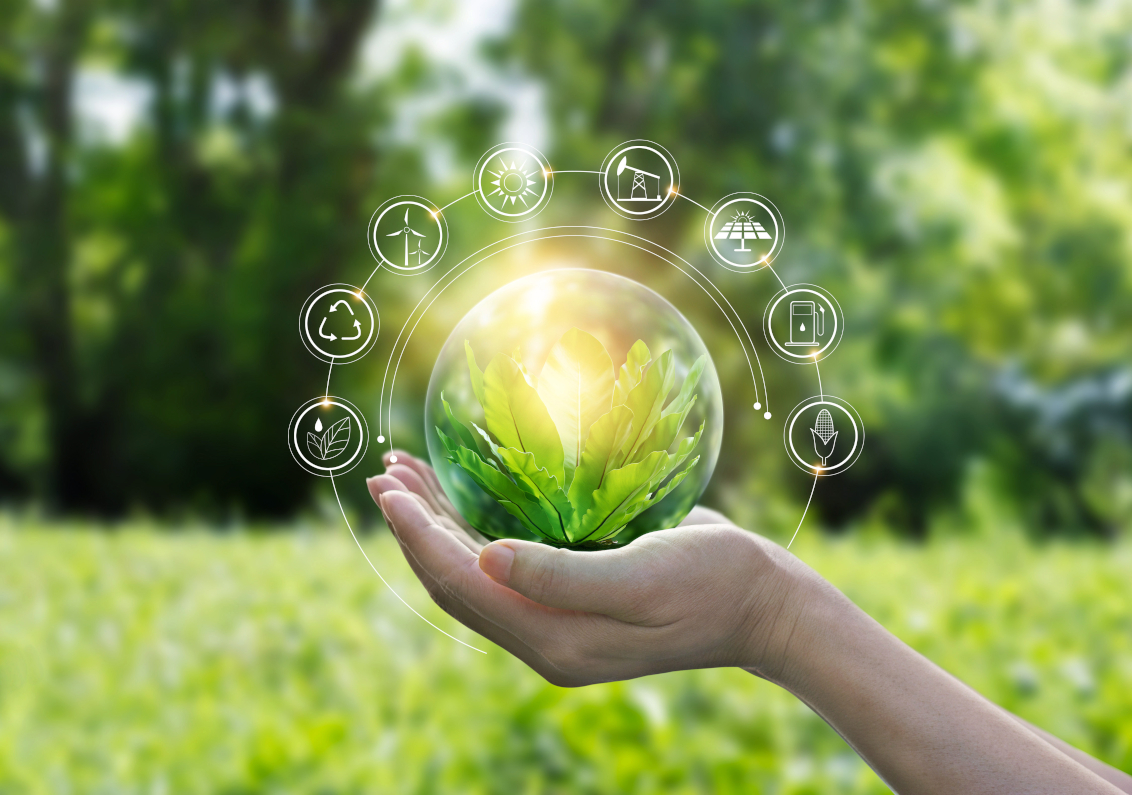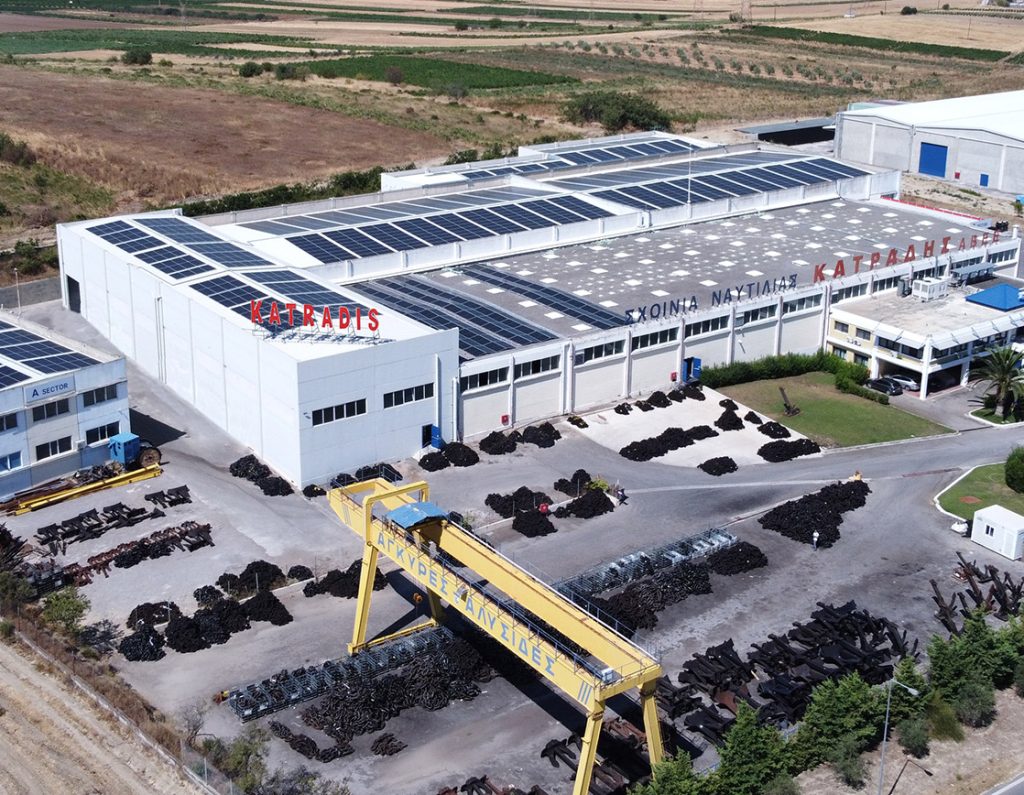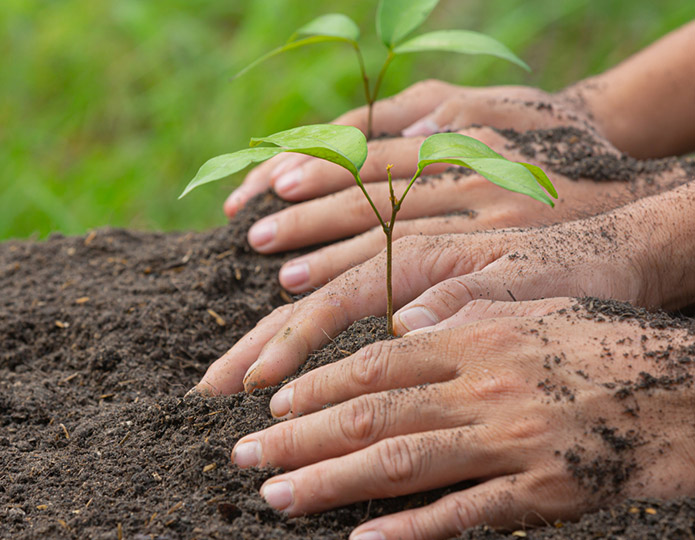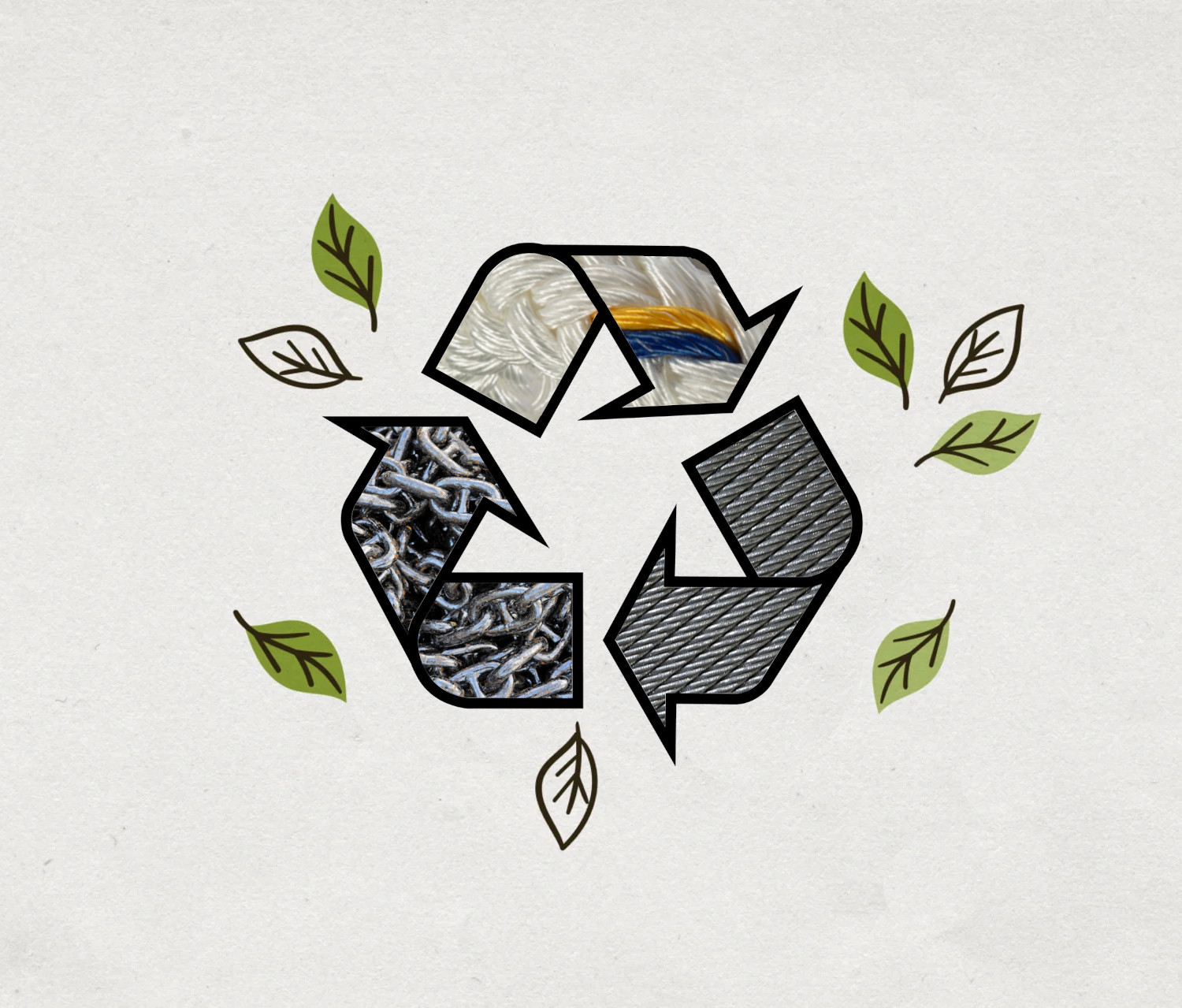
At Katradis Group we understand the critical importance of efficient and responsible use of raw materials in our operations as well as the importance of reducing our waste and environmental footprint. The production of ropes and anodes involves the use of raw materials as primary sources for the manufacturing process.
A close to”zero waste” policy has been feasible, as all production waste(100%), including synthetic fibers, metal residues, and packaging materials are collected and delivered for further management.
The majority of the waste generated during our operations is non-hazardous (approximately 97%).
Furthermore, to increase our efforts to minimize plastic usage and waste, Katradis Group is a member of the”In the Loop” network.


In line with our group’s commitment to environmental consciousness and sustainable practices, we have taken a significant step forward by installing an 800 kWA photovoltaic system. This solar energy project not only represents a major advancement in our use of renewable energy sources but also underscores our dedication to reducing our carbon footprint. The installation of this system is a testament to our resolve to embrace green technology, significantly lowering our dependence on non-renewable energy and aligning with global efforts to combat climate change.
At Katradis Group, we are deeply committed to environmental stewardship and sustainability. We recognize our responsibility to protect the Environment in which we operate and strive to minimize our ecological footprint.


At Katradis, all the raw materials & sub-products we use in the manufacturing of our synthetic ropes, as well as all our metal products such as anodes, wire ropes, anchors and anchor chains and our packaging materials, are fully recyclable ensuring thus that our products contribute positively to the circular economy, where discarded products are reused and re-purposed, significantly reducing waste and conserving natural resources. Furthermore, the superior quality of our products that extends their lifetime, reduces the need for frequent replacements and thus minimizes environmental impact.
This website uses cookies to improve user experience. By using our website you consent to all cookies in accordance with our Cookie Policy.